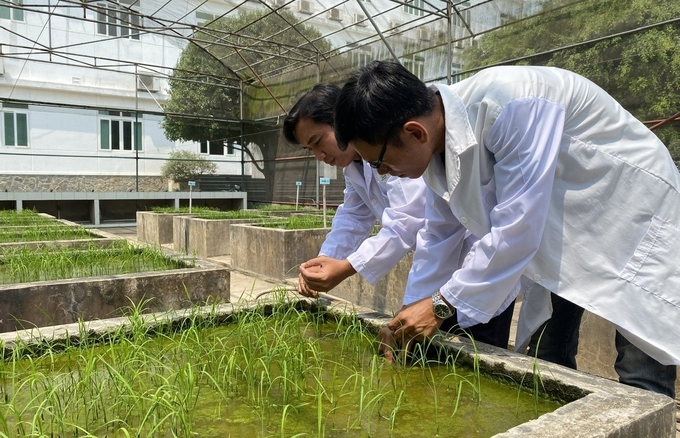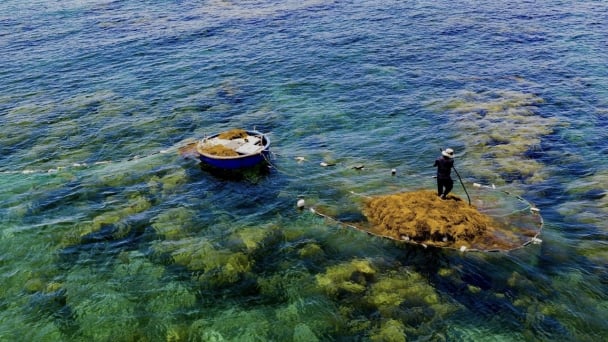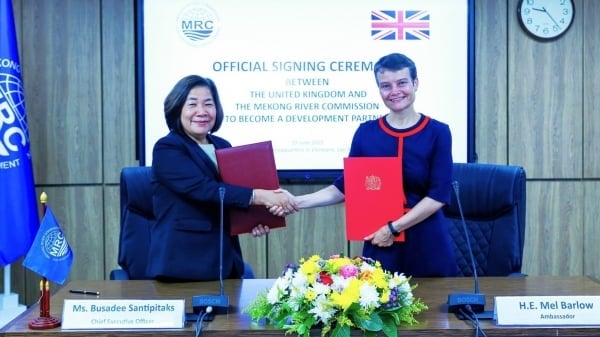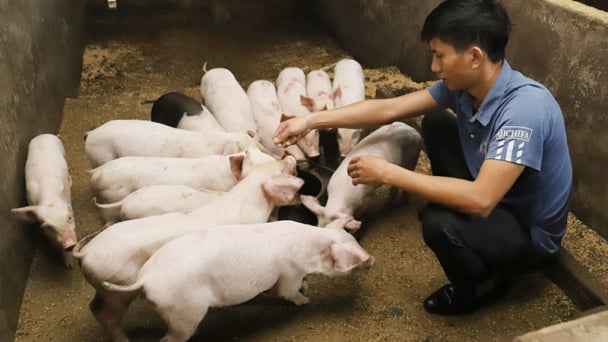June 21, 2025 | 04:02 GMT +7
June 21, 2025 | 04:02 GMT +7
Hotline: 0913.378.918
June 21, 2025 | 04:02 GMT +7
Hotline: 0913.378.918

Researching quality agricultural products to meet market needs is the focus of the agricultural industry. Photo: Do Huong.
Mrs. Pham Thi Lam Phuong, Agency of Foreign Trade, MOIT, said that Vietnam's agricultural, forestry, and fishery exports are facing some difficulties, such as import demand from major markets such as the US, EU and UK tends to decrease due to high inflation in most countries, increased unemployment rates, and macroeconomic instability in many countries.
Consumers in all markets are increasingly interested in the origin and quality of food, how products are made, or how businesses treat workers, the environment, and society.
Uncertainties related to regional and global geopolitical tensions continue to develop complicatedly; Input prices of imported materials are still high.
Vietnamese agricultural products exported are mainly frozen goods, raw or semi-processed materials, and high-value, deeply processed products still need to be added. Since 2017, Vietnam has received a "yellow card" warning from the European Commission on IUU for seafood products to the EU.
"Competition between export markets may increase as many countries are interested in signing and joining FTAs such as the ASEAN - Canada Free Trade Agreement starting in August 2022, bringing advantages for suppliers like Indonesia or the Philippines; or the fact that some economies have expressed interest in joining the CPTPP Agreement...", Ms. Phuong said.
Mr. Nguyen Quang Hieu, Deputy Director of the Plant Protection Department (PPD - MARD), said that with the Chinese market, the PPD will prioritize negotiations to open fresh coconut and frozen durian products while continuing to work to finalize the draft of the Jackfruit Protocol.
Jackfruit is a traditional product that is officially exported, but the Protocol must be signed according to the roadmap to standardize regulations agreed with Chinese Customs. Jackfruit will be followed by longan, lychee, and rambutan.
As for medicinal herbs, China has sent a draft Protocol. The Plant Protection Department is reviewing and collecting comments from relevant parties and promoting signing. However, this item has its characteristics, so there are still many difficulties related to other units.
According to Mr. Hieu, exporting grapefruit to the Japanese market is the most difficult because Japan requires conducting a verification experiment without reusing experimental results from other countries. This experiment has 4 phases, lasting about one year. Therefore, it will take longer and more challenging to complete in 2024.
In addition, he negotiated and opened the market for several crop products. For example, plant quarantine regulations in countries change frequently and become more and more strict; countries tend to apply many new non-tariff measures to agricultural products.
Producers and exporters have limited understanding and must be adequately aware of the importance of complying with the importing country's requirements.
Regarding opening seafood products to countries with excellent import demand, Mr. Dang Van Vinh, NAFIQPM, shared some of the problems Vietnamese seafood exports face in these countries' main import markets. For example, in the EU, only export processing facilities on the list recognized by the EU are currently allowed to export.
In addition, the EU has strict requirements for imported products (on certificates, control along the whole chain), requiring tuna products soaked in brine only to be used for the canning industry...
Translated by Huong Giang
![Turning wind and rain into action: [10] Advancing accessible climate services for farmers](https://t.ex-cdn.com/nongnghiepmoitruong.vn/608w/files/linhnhp/2025/06/20/1911-z6704423696987_15fd32ffc26d590d204d520c9dac6786-nongnghiep-161854.jpg)
(VAN) Not only does it help farmers 'avoid droughts and rains,' the development of agricultural climate services also enhances their ability to proactively adapt to a rapidly changing climate.

(VAN) With international assistance, the harvesting of sargassum seaweed in Quang Ngai has become increasingly regulated, thereby safeguarding marine life and ensuring the stability of coastal communities' livelihoods.

(VAN) On June 19, the United Kingdom officially became a Development Partner of the Mekong River Commission.

(VAN) Biodiversity is being threatened by traditional remedies made from wildlife. Traditional medicine and humans must change to live in harmony with nature.

(VAN) Agrifood investment and finance solutions for people and the planet.

(VAN) Microplastic contamination has become pervasive in seafood, posing unprecedented challenges for food safety and marine ecosystems.

(VAN) Proactively using vaccines, combined with transport control and enhanced surveillance, is the only viable path toward biosecure and sustainable livestock production in Vietnam.